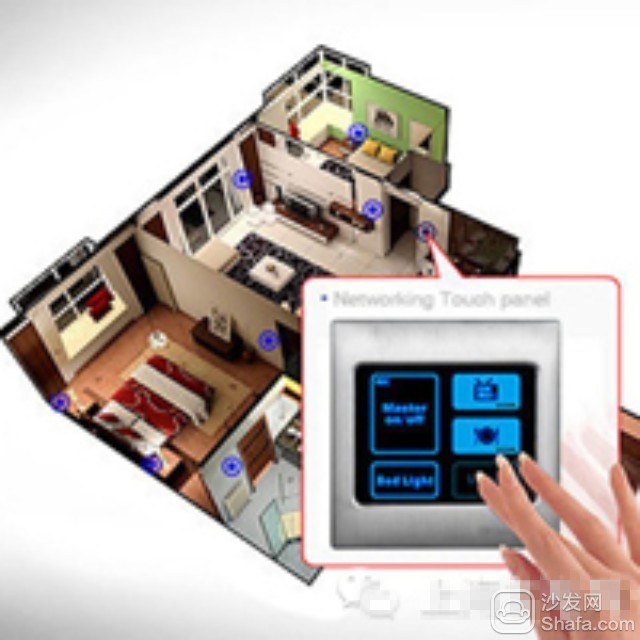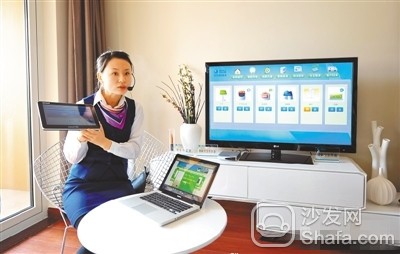
The "2014 China International Wisdom Family Summit Forum" jointly organized by China Electronics Industry Association and China Electronic Equipment Corporation was successfully held in Shanghai recently. The theme of the forum was "innovation, integration, development" and invited the entire industry chain to be outstanding. Representatives came together to discuss how to promote the healthy and sustainable development of the smart family industry. Liu Wei, Assistant President of AVC Consulting, was invited to attend the meeting and delivered a wonderful speech on the theme of “New Opportunities for Smart Home Appliances and Smart Home Development†to analyze the development trend of smart appliances under the smart home.
30th Anniversary of the concept of intelligence, China has been blossoming
Since U.S. United Technologies proposed the smart home concept in 1984, the prologue of smart home applications has officially opened its 30th anniversary. However, there has been no major breakthrough in the field of smart homes, and there have been no major changes at the core level. The reason is that smart home is a very large concept. No country or company can go it alone and do it well.

In foreign countries, US giants such as Cisco and Microsoft have long foreseen the potential of the smart home market. They have made many achievements in the standardization of smart homes: Microsoft has successively developed systems such as Windows CE, Home OS and LOT, and Cisco has focused on All things connected. In today's mobile Internet era, Google and Apple have come from behind, attracting developers based on Android systems and ios system solutions, respectively, and becoming the industry leader. In Japan and South Korea, the number of smart home appliances has exceeded the number of products, but the system products are not enough. The advantage of Japanese and Korean companies lies in the integration of hardware supply chains, but weaker than the integration of hardware and software in the smart home era and the construction of smart homes. Liu Xi concluded that the current smart home field in foreign countries is the “2+N†competitive landscape led by Google and Apple.
At present, with the large-scale deployment of Chinese companies and the competition in the field of smart homes, the concept of intelligence has blossomed. Liu Hao said that China's smart applications in the field of competition, mainly from three aspects: smart appliances, mobile control terminals, smart routers and other hardware product layer; cloud platform, content platform, big data and other operational and service layer; smart home, Wisdom community, smart security and other system solutions. At present, China's smart homes all use the Android system, borrowing foreign standards, at the system program level is relatively weak. However, our country has a strong atmosphere for R&D and manufacturing, and it has performed prominently in the hardware product layer, operation and service layer, and even has seen numerous cross-border events at various levels.
The first year of smart appliances comes with problems and opportunities
2014 is the first year of “Smart Home Appliancesâ€. From the perspective of corporate vision, both traditional companies and Internet companies have released their own smart home appliances and strategically placed in smart homes; The intelligent process has been further accelerated, and intelligent small-power, smart wearable, etc. have also emerged in an endless stream. According to the forecast of AVC, the output value of smart home appliances in China will exceed one billion yuan by 2020. It is this trillion-dollar “big cake†that induces home appliance hardware manufacturers and Internet companies to release smart home strategies one after another, and strives to generate profit in this area to seek distribution.
At present, the smart home appliance industry faces the following three major problems: First, the market is not yet open. As a concept that has been proposed for more than 10 years, the current status of the smart home appliance market is not much different from that of more than ten years ago; second, the demand is not Matching, at present, the design of some intelligent products is not a consideration of user needs, but a patchwork of existing products. The reason is because smart home appliances have no successful reference for reference; and third, closed development affects industrial cooperation. The major household appliance manufacturers are fighting against each other and are turning to intelligent systems. The systems are closed, data is not interconnected, and standards are not uniform.
In the end, Liu Xie described to the participants in the conference a blueprint for future smart homes: The future trend of smart home appliances must be: From complexity to simplicity, from high-end to mid-end, from purely technological intelligence to humanistic intelligence. Show more smart, intelligent, information and networking features; not only achieve the user's needs in security, security, and more close to the user's spending habits and usage habits, to provide users with more convenient, comfortable, energy-saving, Eco-friendly smart home life.
Recommended installation sofa butler Download: http://app.shafa.com/
